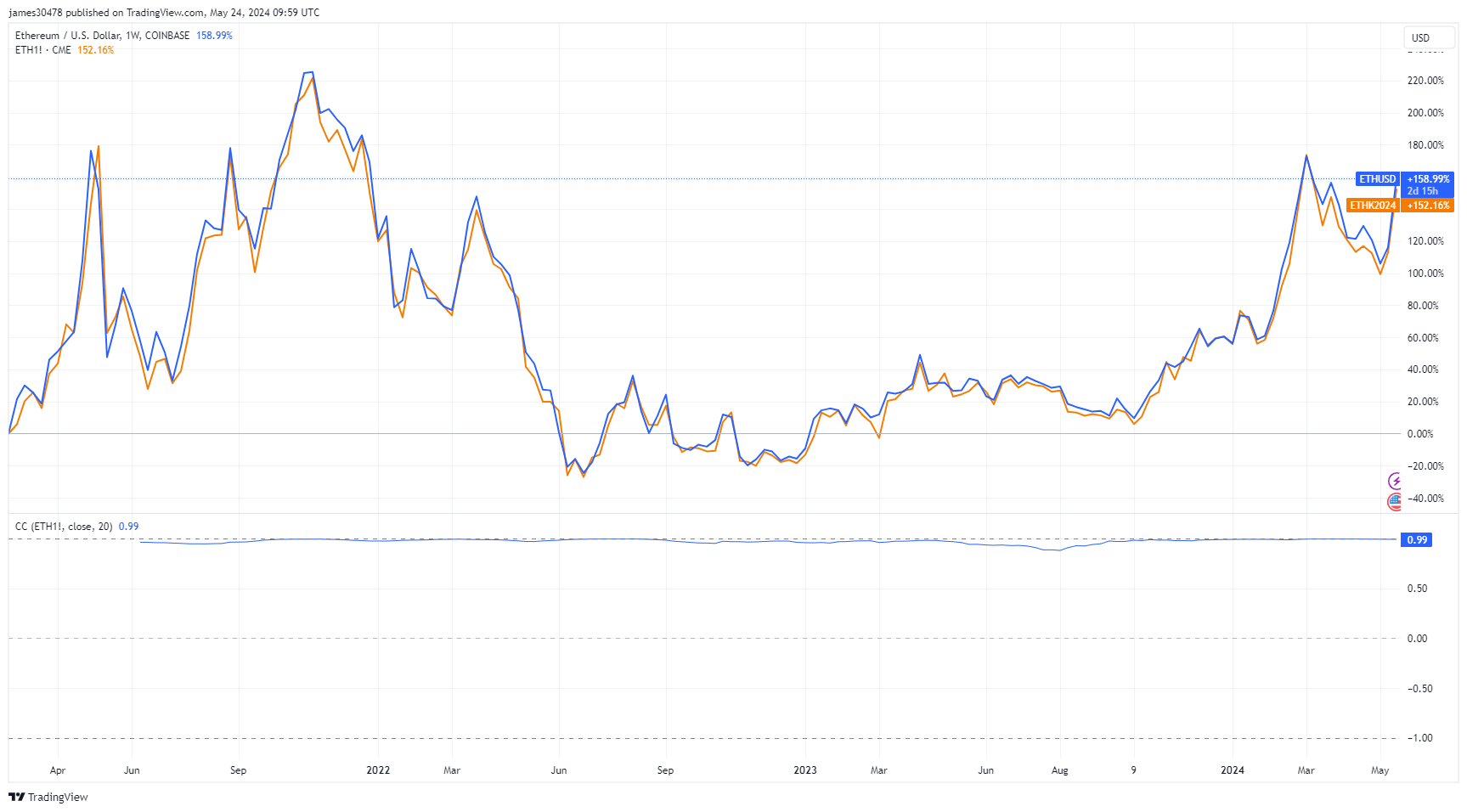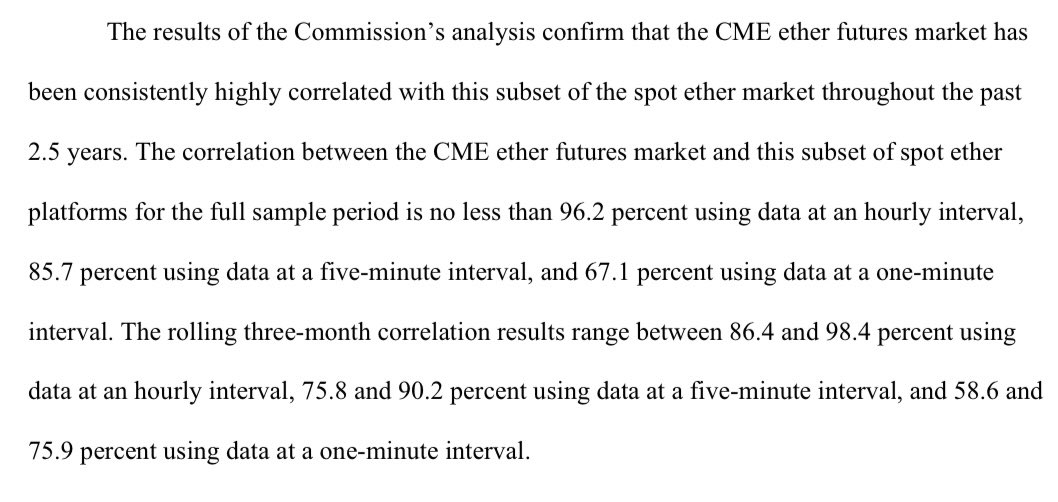ARTICLE AD BOX
Quick Take
On May 23, the SEC approved the Ethereum (ETH) exchange-traded funds (ETF).
In January, commercial litigator Joe Carlasare suggested that approving a spot Bitcoin ETF indicated that an ETH ETF was nearly certain. Carlasare’s assertion was based on several key points:
ETH futures have been trading on the CME since 2021, establishing a regulated futures market for ETH.
“ETH Futures are already Trading on CME”
The SEC has approved Ethereum futures ETFs, demonstrating regulatory comfort with Ethereum-based financial products.
“The SEC has already approved ETH futures ETFs”
CME has the same surveillance-sharing agreement between BTC and ETH.
“The CME has identical surveillance sharing agreements for both Bitcoin (BTC) and Ethereum futures”.
Last, a high correlation between futures and spot markets.
“The correlation of ETH futures to spot is over 90% (just like BTC). This is primary reason they approved the BTC spot etf”.
According to TradingView data, the correlation between Ethereum futures and the spot market has been approximately 99% since the approval of the Ethereum futures ETF on CME in 2021.
 ETHUSD Spot vs Futures: (Source: TradingView)
ETHUSD Spot vs Futures: (Source: TradingView)Nate Geraci, President of The ETF Store, shared documents highlighting the close relationship between the ETH spot and futures markets, a point acknowledged by the SEC.

 ETH ETF data from SEC: (Source: sarahparker345)
ETH ETF data from SEC: (Source: sarahparker345)Given these factors, no other digital assets token besides Bitcoin and Ethereum would receive ETF approval in the near future without new CME product releases. CME does offer reference rates for additional digital assets such as Aave, Chainlink, Polkadot, and Uniswap but does not offer them as tradeable products.
The post Bitcoin, Ethereum ETFs stand alone as SEC unlikely to approve non-CME futures listed digital assets appeared first on CryptoSlate.
.png)
 7 months ago
3
7 months ago
3








 English (US)
English (US)